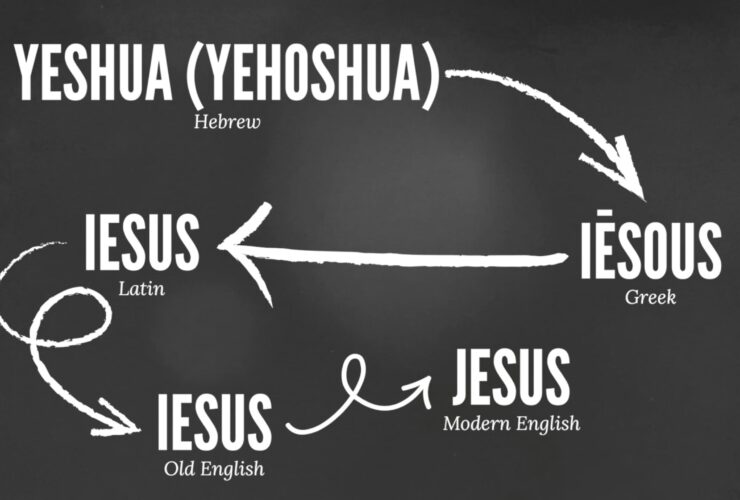It is an easy thing nowadays to take for granted just how dangerously complex a lie truly is. Whether it is subtle or subliminal, or as plain as the high noon sun, a lie is never quite so simple. It is conventional to reduce a lie to mere logical contradiction, wherein a person rejects something that has happened or attempts to discredit certain truth. At first glance the most common lie seems to be the former, a denial of the past. A clear example of this is in Genesis when the Lord told Abraham that he and his wife, Sarah, were to have a son, despite Sarah being well passed childbearing age. If you recall, Sarah laughed at the prospect. But when the Lord pressed her on it, “Is anything too hard for the Lord?” she became afraid and reacted defensively, “I did not laugh” she lied. “No, but you did laugh.” rebuked the Lord (Genesis 18:10-15). While this account is humorous, it is also deeply misunderstood. Sarah did not lie once, she lied twice. Her first lie was her prospective denial of what God would do in the future when she laughed presumptuously–––it was a future-tensed lie. Her second lie, then, was a past-tensed lie, which was to cover up her denial of what the Lord said He would do.
This is telling. It is significant for more reasons than I have room to explore, for the consequences of understanding deception lie beyond the hamartiological or psychoanalytical understanding of human behaviour, it ratifies how we perceive true doctrine and weed out false ones, especially when it concerns a presumptuous belief in future things or antiquity (that which rest well beyond the scope of our immediate context and experience). Not to imply that deception in the present-tense isn’t relevant; it very much is. Satan, after all, lies about who he is, masquerading as an “angel of light” (2 Corinthians 11:14). Deception comes in many forms, and that’s the point. If a lie is retrospective and prospective, as well as a twist in perspective of a given moment, it means that the biblical understanding of a lie is much more robust than mere contradiction. It is more than just denying certain facts about the past. A lie is presumptuous, claiming or believing to know something for certain that you do not know for certain. A lie is manipulative, it sets out to alter perception or cast an illusion around a subject. A lie is motive, whether one reacts defensively to justify behaviour or harbours deliberate malicious intent.
Motivation aside, to be a persuasive liar is less about contradicting truths and more about redirecting vectors, the angle and force (or direction and magnitude, as it were), of one’s perception or understanding. Deception, then, aims to rearrange a priority structure, the hierarchal value of certain truths, whether in a command, promise, contract, opinion, belief, or what have you. In other words, a lie is not an instance, it is a pattern. Consider Satan for a moment. A lie is integral to his disposition, it precedes his verbal tactics and intent. “When he lies, he speaks out of his own character, for he is a liar and the father of lies.” (John 8:44) And if a lie is dispositional, then Satan’s disposition fosters self-deception–––caught in his own web of lies, whether instinctively, willfully, or even, perhaps, to some extent, unconsciously. If self-deception is integral to his disposition and character, a lie is a pattern of his identity. Don’t believe me? Let’s check out the details.
Examining the Father of Lies
If we consider each instance of Satan speaking, whether he was tempting Christ, accusing Job, or deceiving Eve, Satan’s deception focuses on rearranging one’s value structure in order to achieve some future goal, and he does so primarily by lying in the future-tense, which I call prospective deception. Contrary to this, and how we commonly identify a lie, there is only one instance of Satan employing retrospective deception, which was to cast doubt in Eve’s mind about what God said to Adam, “Did God actually say, ‘You shall not eat of any tree in the garden’?” (Genesis 3:1). Take notice, here, that Satan is not lying per se, nor is he denying what empirically happened or rejecting God’s statement. Rather, it is a simple pointed question, that may have even sounded sincere, which aims to pry open a weak point: Eve was not there when God told Adam the command, so she had wiggle room to doubt, and he took advantage of it. Notice that when Eve responds, she adds an additional command, either self-conceived or instructed by Adam, “We may eat of the fruit of the trees in the garden, but God said, ‘You shall not eat of the fruit of the tree that is in the midst of the garden, neither shall you touch it, lest you die.’” (v.2-3) Satan, noticing an opportunity to strike, does not lie in return (as we would consider a lie), rather his answer is a cocksure misdirection with the truth, “You will not surely die. For God knows that when you eat of it your eyes will be opened, and you will be like God, knowing good and evil.” (v.4-5) There is nothing that Satan said, here, that is technically false. Satan is as clever as they come. He is right, and he knows they “will not surely die” by eating the fruit of the Tree of Knowledge of Good and Evil since they have eternal life by eating the fruit from the Tree of Life – it is not the fruit itself that will kill Adam and Eve. Instead, he redirects her attention to the actionable consequence of eating the fruit from the Tree of Knowledge, “For God knows that when you eat of it your eyes will be opened,” meaning he made the subject of the command eclipse the original purpose of the command: Obey God. It was their disobedience to God’s command that would result in the Fall, it was not the act of eating the fruit in itself. A liberty granted by one minor additional rule: neither shall you touch it. When Eve grabs the fruit from the Tree of Knowledge and does not die, Satan’s words immediately appear truer in her eyes (Genesis 3:6), which not only reinforces her immediate doubt in God’s original command to not eat of it but also entails a loss of faith in God Himself (Genesis 2:16-17). God even confirms this understanding when He verbatim repeats what Satan said: “Behold, the man has become like one of us in knowing good and evil. Now, lest he reach out his hand and take also of the tree of life and eat, and live forever—” therefore the Lord God sent him out from the garden of Eden to work the ground from which he was taken.” (Genesis 3:22-23) God’s first command gave Adam and Eve purpose in His creation, then God swiftly distanced Adam and Eve from their purpose in His creation because they violated the purpose of God’s command (cf. Genesis 1:28-30; 3:16-19,21,24). In tandem, Satan’s deception is prospective in ambition, by rearranging or twisting their immediate perspective in the priority structure of God command, prioritizing the work of eating the fruit as well as its consequence that “in the day that you eat of it you shall surely die” (v.17) over and above faithful obedience to God, he was able to alter their perception of what will happen[1]. The foundation of their belief was switched with a bag of dust. It was sleight of hand, a deception, a lie that never once contradicted God’s command. Satan lies by telling the truth.
“You will not surely die. For God knows that when you eat of it your eyes will be opened, and you will be like God, knowing good and evil.”
Genesis 3:4-5
Another instance of prospective deception is in Job 1-2, when the sons of God (or angels) present themselves before God, and Satan appears among them. The Hebrew word satan is a masculine noun that serves as both a name and title, meaning “the accuser, the adversary”, and the word devil in Greek means virtually the same, “accuser, slanderer, attacker”, or literally “to throw across” (cf. Ephesians 6:16). The symbolic connotation, however, is in a legal sense, where Satan is throwing accusations against humanity in a proverbial court of law. In fact, he does so regularly (Zechariah 3:1-2), he “accuses them [saints] day and night before our God,” (Revelation 12:10). In the case of Job, now, Satan uses his large sum of evidence and experience with human nature “from going to and fro on the earth” (Job 1:7) as a way to wager God, hoping to provoke Job to slander Him, he says, “Does Job fear God for no reason? Have you not put a hedge around him and his house and all that he has, on every side? You have blessed the work of his hands, and his possessions have increased in the land. But stretch out your hand and touch all that he has, and he will curse you to your face.” (Job 1:9-11) When God permits Satan to take Job’s wealth and children, Job does not respond in the way Satan desired, so he returns to God and wagers him again, but this time for his life, “Skin for skin! All that a man has he will give for his life. But stretch out your hand and touch his bone and his flesh, and he will curse you to your face.” (Job 2:4-5) Despite Satan’s measly attempts to best God, he had probable cause against Job, that deep down any human will “Curse God and die” (Job 2:9) to preserve his life or integrity – it is just human nature. He was not betting against the odds; the odds were in his favour. While we tend to think a lie is a contradiction of sorts, in this instance Satan is just presumptuous. His lie is an absolute claim about what Job will do without truly knowing what Job would do (Job 1:11, 2:5). Without ground to stand on, however, we learn that Satan ultimately drew a false accusation against Job. It just took time to prove him wrong. Satan lies by claiming to know what will happen when he does not know for certain, even when he has probable cause.
This is also one of the underlying themes of the book of Job. Not only Satan, but Eliphaz, Bildad, Zophar, and Elihu all speak presumptuously on God’s behalf as if to possess perfect theological knowledge (Job 36:2-4). Even Job is found guilty of this to some degree (Job 38:2-3,18; 40:1-2,7-8; 42:7-9).
There are several other passages that corroborate this understanding of prospective deception wherein presumption is regarded as a lie, such as identifying false prophets (Deuteronomy 18:20-22), Saul’s rebellion and idolatry (1 Samuel 15:23), Satan’s temptation of Christ (Matthew 4:8-9) and Peter’s rebuke then denial of Christ (Matthew 16:21-25; Matthew 26:31-35). Let’s examine further.

Presumption is a Lie
Identifying false prophets. In the Mosaic Law, if you were found guilty of speaking falsely on behalf of God, it was punishable by death. Moses refers to this lie as speaking presumptuously, which is the act of believing that something is true or behaving like something is true even though it is not certain to be true. That is, there is an edge of arrogance in consciously assuming something is true or acting like it is true when it is not necessarily true, and it worsens when a person uses God (Truth) to justify the belief/act. Scripture says, “But the prophet who presumes to speak a word in my name that I have not commanded him to speak, or who speaks in the name of other gods, that same prophet shall die.’ And if you say in your heart, ‘How may we know the word that the Lord has not spoken?’— when a prophet speaks in the name of the Lord, if the word does not come to pass or come true, that is a word that the Lord has not spoken; the prophet has spoken it presumptuously.” (Deuteronomy 18:20-22; cf. Deut. 13:1-5) Consider the implication of this for a moment; this is a normal way to believe in things today. A presumption is something that is accepted as true but is not certain to be true. Perhaps, it is a belief on reasonable grounds or probable evidence; strong beliefs in the mechanical details of how God created the cosmos, or the exactitude of how the end times will play out, come to mind. But a presumption still is, at bottom, uncertainty feigning certainty. The content of a presumption is, technically, not worthy of belief; it is arrogant to assume it is truth, and more arrogant to teach it as truth, when you do not know for certain, or worse, you know better[2]. If it has to do with Scripture, especially prophecy, then you are speaking on God’s behalf by default. Presumption is the opposite of prophecy. The prophet Samuel ties this in well.
Saul’s rebellion and idolatry. After King Saul disobeyed God’s clear instructions and built a victory monument in his name, even though he was ordered to tear down the opposing monuments since they were idolatrous and “devoted to destruction” (v.9), the prophet Samuel rebuked him and then God rejected him: “For rebellion is as the sin of divination, and presumption is as iniquity and idolatry.” (1 Samuel 15:23) The word presumption, here, also connotes arrogance, stubbornness, and pride. Saul was presumptuous to believe that he conquered the Amalekites on his own, and the war monument to himself spoke volumes in his hypocrisy (v.12). He set himself up as the autonomous authority, he believed in himself above God. In doing, Saul pointed praise and worship to himself, like the pagan cultures around him, he claimed to be something he is not – a god – or, at the very least, claimed to be a sufficient substitute for God (Godlike). Saul is not God, yet he desires to receive praise as such – that is the lie. It is, at bottom, a direct contradiction of nature. Presumption is idolatry: worshipping yourself. But presumption does not work alone.
By Saul raising a sacred stone in his honour, he also declares a rebellion against his king, God. Saul’s role as king over Israel is but an earthly vassal king, a representative of the true God of Heaven. Samuel likens this rebellion to “the sin of divination”. A rebel, of course, strives against a given authority and usurps their authority by not recognizing it and pedestalling themselves as the ‘rightful’ alternative ruler. This is, of course, to view yourself as a self-made man. Now, even if you know very little of the ancient practice of divination, this rebuke only intensifies. Divination was the act of communicating with the spiritual world through mediums, fortune-tellers, or by casting lots to obtain insight, direction, or favour from the gods (demons) to help make a choice about a given situation or question. Samuel is likening this act of setting up a monument in his own name as divining himself, as if he were a god, which is what the fallen angels or demons were doing (Deuteronomy 32:16-18 NIV). In rebellion against God, you are the fortune-teller of your own future, casting your lot against God’s plan, betting against the odds in your favour as if you know how the dice will land. Rebellion is presumptuous.
“Get behind me, Satan! You are a hindrance to me. For you are not setting your mind on the things of God, but on the things of man.”
Matthew 16:21-25
Satan tempts Christ. Further consider when Satan tempts Christ in Matthew 4:1-11. The first two temptations are not lies per se but would invoke a peculiar boastful spirit to act on, which would also, then, be a setup for further exploitation. Satan asks, “If you are the Son of God, command these stones to become loaves of bread.” (v.3) After Jesus reproofs him, he quickly retorts, “If You are the Son of God, throw Yourself down. For it is written: ‘He will command his angels concerning you,’ and, ‘On their hands they shall bear you up, lest you strike your foot against a stone.’” (v.6) Christ responds, “You shall not put the Lord your God to the test.” (v.7) Each time Satan quotes Scripture, Christ throws Scripture back.
Now, imagine; suppose Christ simply responded “Sure” to the first temptation by turning a stone into bread. What harm would be done? Well, Christ was in the wilderness fasting, and making bread would be the first step to eating bread, which would violate his purpose and calling to the wilderness. A lie aims to shift the purpose of obedience by acting on your temptation. Without purpose, foundational beliefs evaporate. It is a bread crumb that intends to entangle you in a web of lies that Satan has strung together.
Another thing to take note, here, is that Satan lies with Scripture – He knows it well and uses it well – as a way to incite the ultimate lie within: Pride. He can present an interpretation of Scripture that sounds promising or truthful, which then seems profitable for belief since it does not explicitly or technically contradict a doctrine per se. But it is the beginning of deeper lies. This calls for discernment. For it is pride, arrogance, and idolatry, the desire to be God (Ezekiel 28:13-17; Isaiah 14:12-15) that corrupted so many angels to rebellion (Revelation 12:3-9). Christ’s humility, however, contends this well (Philippians 2:5-11). More on this in a bit.
The final temptation, however, is another prospective deception. Satan takes Christ to a very high mountain and showed him all the kingdoms of the world and their glory, and then presumptuously proposes something he has no authority to offer, “All these things I will give You if You will fall down and worship me.” (v.9) It is yet another future-tensed lie. But once again–––sort of. It is a half-truth. There are two things to consider. First, if Jesus did, in fact, give into temptation, the powers of darkness would prevail, and Satan would have total authority over the world since God lost the cosmic war. However, Jesus is still not ruler of the earth. Even if Satan could – as the ringleader of a cosmic rebellion – give Jesus the kingdoms of the world if he worships him, Satan is still the ultimate authority of the world! If Christ worships him, Christ answers to him. The lie is in self-advantage.
Peter rebukes and denies Christ. Finally, I hope I’m not speaking out of turn, but the apostle Peter is another example of prospective deception when he rebuked and denied Christ. When Christ told His disciples beforehand that he was to suffer and put to death, Peter rebuked him, “Far be it from you, Lord! This shall never happen to you,” and Christ said, “Get behind me, Satan! You are a hindrance [or stumbling block] to me. For you are not setting your mind on the things of God, but on the things of man.” (Matthew 16:21-25). You see, Peter had good intentions, humanly speaking, but not heavenly intentions. Peter desired Christ’s political ascension to kingship and Israel’s freedom from Rome. He was cocksure that his position was right, but it was not. He spoke presumptuously. More poignantly, Satan was working through Peter’s presumption, which was akin to the third temptation he rejected in the wilderness. Peter unintentionally opposed Christ in his presumption.
Later, Peter was convinced, without a shadow of a doubt, that he would never forsake Him, he says, “Though they all fall away because of you, I will never fall away.” (Matthew 26:31-35) And when Christ pressed him on it, he retorted, “Even if I must die with you, I will not deny you!” But when the time came and push came to shove, denial was the first card he played (Luke 22:54-62). Peter sincerely believed in himself in so much as to challenge Christ, but it was not a true belief; it was a presumption. It was a strong belief, no doubt, but not one that could stand up to trial and tribulation.
Peter was unwittingly self-deceived on both accounts. While one may argue this happened to Peter before Christ’s resurrection and ascension, and before Pentecost and the filling of the Holy Spirit, all that does it make my point stronger; how we believe in things today is even more concerning. A subject that goes well beyond the scope of this entry and deserves immediate attention.
Presumptuousness Today
Peter’s testimony is a healthy reminder. How we perceive a lie directly affects how we believe, and how we believe affects how we behave because when you believe in something, you assume it is true. The relationship between belief and truth cannot be understated. While some truth is more valuable than others, any interpretive belief that is grounded in Scripture, no matter how true or false a person’s interpretation is, can easily become foundational belief because Scripture comes from God–––it must be true. We would do well not to presume too much when it comes to Scripture; Satan lies with it, after all. We can be guilty of presuming too much by projecting our own interpretation onto Scripture as if it is truth, yet, like Peter stumbling, we fall prey to behaving and believing in things we want to be true as if it is truth, rather than believing and behaving through the Holy Spirit in wisdom and truth. We would be wise not to be too presumptuous when it comes to the Word of God. Likewise, we can also be guilty of teaching or believing in doctrine that could-be-true as if it will be true, or worse, as it is foundational truth in matters such as, say, the finely combed details of the end times and when the rapture will take place, dreams from YouTube prophets, or the mechanical exactitude of Genesis 1 or lack thereof, to name a few[3]. If something is not necessarily true, do not teach it or believe it like it is gospel truth. What do the Scriptures say? “Do not boast about tomorrow, for you do not know what a day may bring.” (Proverbs 27:1) And elsewhere God says, “Where were you when I laid the foundation of the earth? Tell me, if you have understanding. Who determined its measurements—surely you know!” (Job 38:4-7) Knowing what we do not know is integral to humility, and humility is integral to theology, that is faith seeking understanding. And if you do presume too much–––repent–––do not double down. Because if you say in your heart ‘God would only do such-and-such this way’, and you are wrong come Judgment Day, you spoke presumptuously on God’s behalf, because what you really said was: ‘God would only do such-and-such my way’. Satan may be the father of lies, but his sister is the mother of presumption.

Matlock Bobechko is the Chief Operating/Creative Officer of Bible Discovery. He is an eclectic Christian thinker and writer, award-winning screenwriter and short filmmaker. He writes a blog on theology, apologetics, and philosophy called Meet Me at the Oak. He is also an Elder at his local church.
[1] One could make a case that this effectively corroborates salvation by faith, not by works. Adam and Eve’s original purpose was to obey God, but their faith in God was severed when they made the purpose of the command to not eat the fruit from the Tree of Knowledge. The command, ‘do not eat the fruit’ is a work, but the purpose to live in obedience to God is faith (Ephesians 2:8-9; Galatians 2:16,21; Romans 8:3-4; Romans 9:31-32). It is possible, likely even, that God would have let them eat of the Tree of Knowledge of Good and Evil at the appropriate time. And if faith is not a work, then it emphasizes the need for salvation by grace through Christ Jesus, the second Adam (Romans 11:6; Galatians 5:4). For we cannot work or merit our way into faithful obedience; works are contingent and complemented by faithful obedience (James 2:14-26). And “if it is by grace, it is no longer on the basis of works; otherwise grace would no longer be grace,” (Romans 11:6) then works of law are contingent upon grace through faith to ‘work’, so to speak.
[2] Consider how many motivational speakers with life coach theology go online to encourage you in yourself, or YouTube prophets speak on their dreams from God about the future of America, or claiming to know that Christ’s return is imminent before persecution strikes, or have been given a new interpretation of Revelation for us to unlock, and yet, are also saying they are not a prophet? This is double tongued (Jeremiah 23:16). You cannot have it both ways. You’re either speaking on behalf of God or you’re not.
[3] Or even as far as to claim that faith only is needed for salvation and that love is not necessary (cf. Luke 10:25-28; 1 Corinthians 13:2,13) because it was passed on through tradition or it was how we were raised, and yet do not double check our own interpretation or inquire of a man of God for further clarity.
[4] To believe in something non-empirical is a matter of faith and by denying a fact, however household or brute, one is guilty of breaking the chains off the canons of observation that can be proven false in order to save religious conviction, so the accusation goes. Facts provide a ground to stand, and faith does not, apparently. For instance, by denying that evolution by natural selection happened over billions of years, one must do so from faith and a lack of evidence, resting on supernatural intervention and speaking from silence, so they say.






